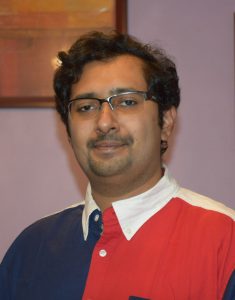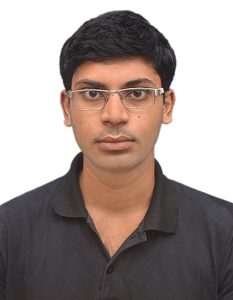The QIF awards were given, this year, to 12 teams (the ‘Winners’) who submitted new proposals in 2023 as well as 4 teams from the batch of 2022 winners. The latter have been selected as ‘super-winners’ and will be offered a continuation fellowship this year.
Three teams from the Department of Electrical Engineering, IISc have won the QIF awards.
Team 1


Student: Siddarth Asokan Faculty adviser: Chandra Sekhar Seelamantula
Affiliation: Robert Bosch Centre for Cyber-Physical Systems and Department of Electrical Engineering
Category: Super-winners
Title of the winning proposal: Demystifying the Optimal Generator in Generative Adversarial Networks
Domain: Machine Learning
Brief summary of the work: Generative adversarial networks (GANs) are a two-player game between a generator network and a discriminator network. The generator accepts high-dimensional Gaussian noise as input and is tasked with creating realistic images. Existing GAN approaches train these networks using back-propagation from standard deep-learning libraries. As part of the winning QIF 2022 proposal, the generator optimization in GANs was analysed, and connections between the optimizing generator, score-based diffusion, and gradient-flow models were derived. From an applications standpoint, state-of-the-art performance was demonstrated when training the GAN generator with inputs drawn from closely related ‘friendly neighbourhood’ datasets. As part of the 2023 super-winner proposal, applications of the GAN discriminator in Langevin diffusion will be explored as an alternative to both generator optimization, and score-based approaches, and the applications to image denoising, deblurring, and inpainting will be considered.
Team 2
Students:


Student: Nareddy Kartheek Kumar Reddy Student: Siddarth Asokan

Faculty adviser: Chandra Sekhar Seelamantula
Affiliation: Department of Electrical Engineering
Category: Winners
Title of the winning proposal: Compressive Generative Models on Data Manifolds
Domain: Machine Learning
Brief summary of the work: The proposal was motivated by the need to develop alternative frameworks of thoughtful generative modelling that do not have intimidating requirements on compute and energy. The objective is to develop an efficient and scalable approach for high-resolution image generation by leveraging low-dimensional embeddings. The formulation relies on the generator operating in the compressed domain, and a multi-discriminator framework. The end goal is to generate high-resolution images with efficient generative models.
Team 3


Student: Debarpan Bhattacharya Faculty adviser: Sriram Ganapathy
Affiliation: Department of Electrical Engineering
Category: Winners
Title of the winning proposal: A distillation-based approach for model agnostic explainability
Domain: Machine Learning
Brief summary of the work: Deep neural networks have become an integral part of state-of-the-art modelling across domains. However, they are highly non-linear, making them impossible to understand, interpret and debug. The current project is on a novel approach to post-hoc explainability that, given an already trained black-box deep neural network, seeks to provide explanation for its behaviour.
